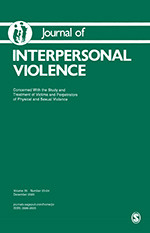Graham, Hopkins, Cavaletto, and Aggarwal
October 16, 2024
Laurie Graham, Quince Hopkins, April Cavaletto, and Nikita Aggarwal published in the Journal of Interpersonal Violence
Assistant Professor Laurie Graham, Levitas Initiative Director Quince Hopkins, PhD student April Cavaletto, and PhD candidate Nikita Aggarwal recently published an article in the Journal of Interpersonal Violence titled "Using Restorative Justice to Respond to and Prevent Sexual Harm: A Qualitative Study of Formal Practices in Six Countries."
The research team conducted and analyzed 24 semi-structured in-depth interviews with RJ practitioners and researchers working in six countries. Informants discussed using formal RJ practices primarily to respond to instances of adult sexual assault or to resolve sexual harm that adults experienced when they were children, a subset of violence that leads to sexual harm. RJ-inspired responses typically involved receiving a referral, assessing appropriateness for participation, preparing participants for the RJ process, and conducting the RJ process. Informants shared anecdotal examples of measurable indicators of program success as well as tangible benefits of RJ processes, such as participant satisfaction, increases in participants' coping skills, and signs that harm will not happen again. However, most programs represented in the data were not formally evaluating their RJ programs. Among RJ process challenges were having limited resources, being faced with unsupportive beliefs concerning the use of RJ for addressing sexual harm, and enduring COVID-19. Informants also noted that factors that aid success of RJ processes include funding, partnerships, and positive RJ-related views. Study findings highlight that more research on using RJ to address sexual harm is needed, including studies that investigate best practices for delivering such responses in partnership with diverse communities.
Read full article, https://doi.org/10.1177/0886260524128587